Key players in Syria's latest violence, from the Druze and Bedouin to government forces
Who are the Druze? And why are other countries involved?
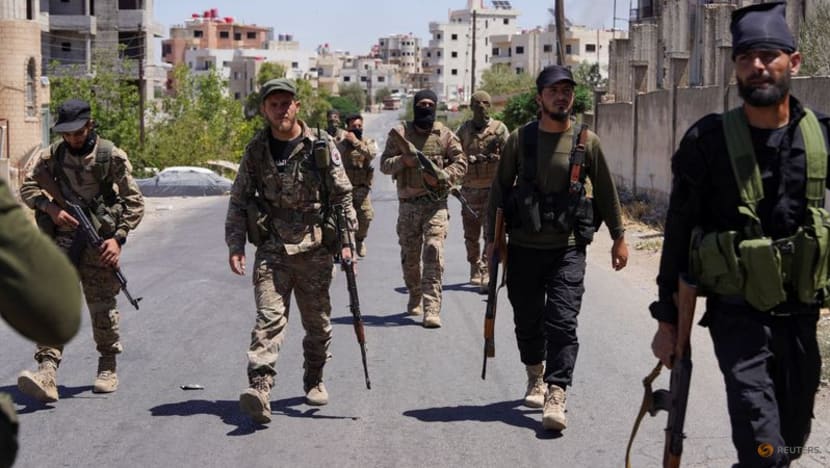
Syrian security forces walk together along a street, after clashes between Syrian government troops and local Druze fighters resumed in the southern Druze city of Sweida on Jul 16, 2025. (Photo: Reuters/Karam al-Masri)
Clashes that shook southern Syria this week killed hundreds of people, including civilians, and drew in an array of local and international players, harking back to the dynamics of the country's years-long civil war.
The violence underscored the difficulties facing the Syrian new government struggling to consolidate control over the country, months after insurgents ousted longtime autocrat Bashar al-Assad in a lightning offensive last December.
Some key players and alliances in Syria are different now than during the civil war, but the landscape remains complex.
Here's a look at the main parties in the four days of violence in Sweida province before a ceasefire mediated by the US, Türkiye and Arab countries took effect. The truce mostly held on Thursday (Jul 17), although scattered violence was reported.
THE GOVERNMENT
Interim President Ahmad al-Sharaa leads the new government and is Syria's international face. His Hayat Tahrir al-Sham group, once an Al-Qaeda affiliate that later split from it, spearheaded the anti-Assad charge.
Since taking power, al-Sharaa has taken a more moderate tone, preached coexistence and formed diplomatic ties with Western countries, including the US.
His government has faced suspicion from minority communities, including Assad's Alawite sect, Christians, Syrian Kurds and the Druze, and there have been outbreaks of sectarian violence. Damascus also struggles to turn a patchwork of former rebel groups - including some extremists - into a professional army.
In Sweida, al-Sharaa's government forces intervened in clashes that started between local Bedouin tribes and Druze militias, but ended up themselves clashing with the Druze, drawing Israeli airstrikes, purportedly in defence of the Druze.
Some government fighters allegedly killed Druze civilians, looted and burnt houses.
THE DRUZE
The Druze are Arabs who follow a religion derived from a branch of Islam. They maintain a degree of secrecy about the practice of their faith that emerged in the 11th century and incorporates elements from Islam and other philosophies, emphasising monotheism, reincarnation and the pursuit of truth.
Syria's interim President Ahmed al-Sharaa called them part of the Syrian fabric and vowed to protect their rights in a speech on Thursday.
Benjamin Radd, political scientist and lecturer at the University of California, Los Angeles School of Law, told CNA’s Asia Now programme that al-Sharaa is facing pressure to demonstrate he can "rise above his jihadist past" to protect all communities in Syria regardless of faith.
Syria's Druze are concentrated in the southwest in the Sweida region bordering Jordan and in areas of Quneitra province, near the occupied Golan. They also reside in the Damascus suburb of Jaramana.
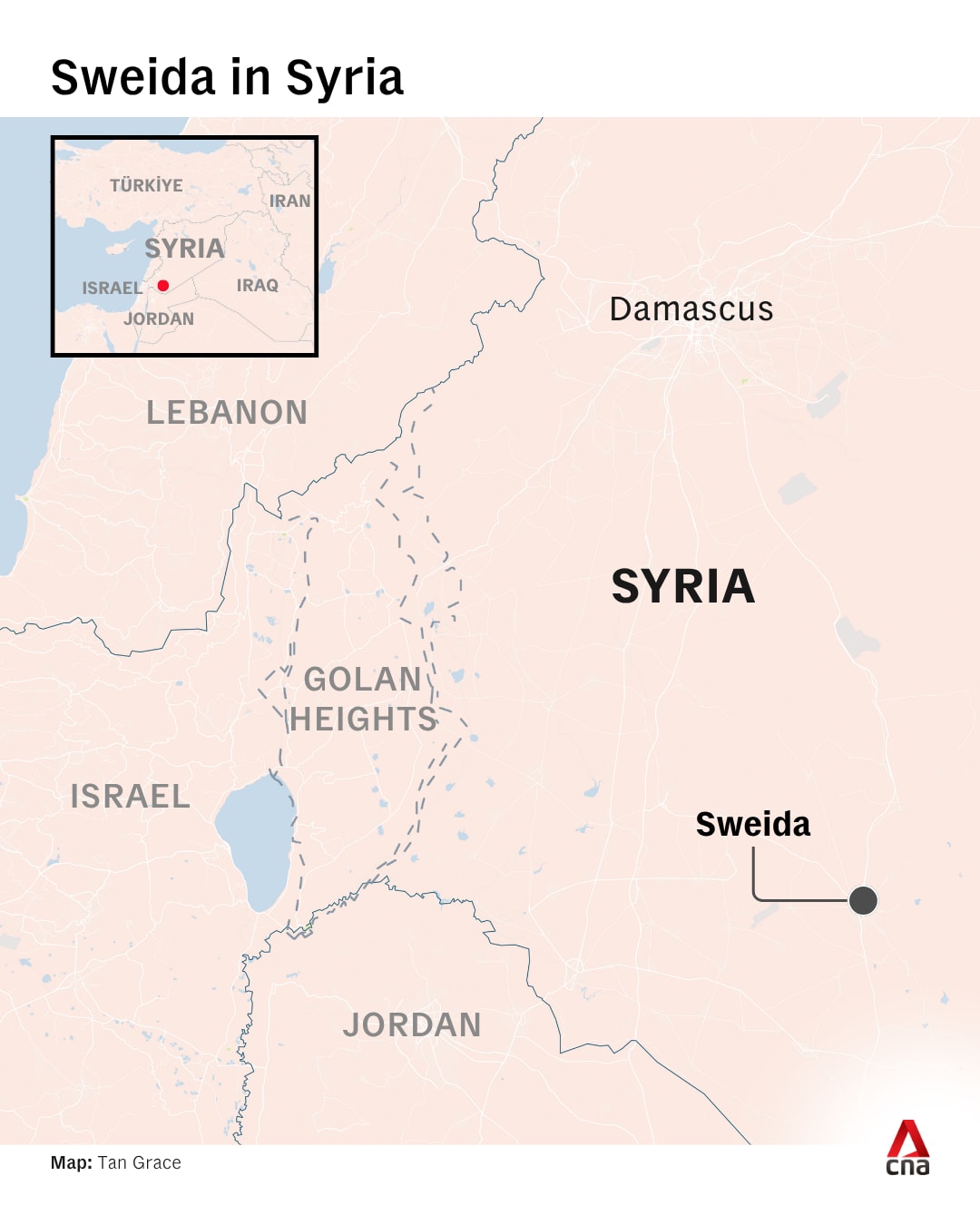
In Israel, about 150,000 Druze reside primarily in the north and the occupied Golan.
“Now you have this situation where these populations need to basically come under a unified leadership ... And there's, I think, about 100,000 or so Druze who are residents or citizens of Israel,” said Radd.
He added that there is pressure on Israel to keep them protected. "Not just the Druze in Israel itself, but also those that it's responsible for in the Golan Heights."
He noted that such a situation added to the pressure faced by the Syrian government to keep a unified approach to governing all its citizens.
During Syria's civil war, the Druze were split between supporting Assad, who offered them a degree of autonomy and exemption from army conscription, and his opposition. They established their own militias, partly to defend against militants who consider them heretics.
Until this week's clashes, the Druze were split between those who wanted to integrate with the new government and those seeking to maintain autonomy.
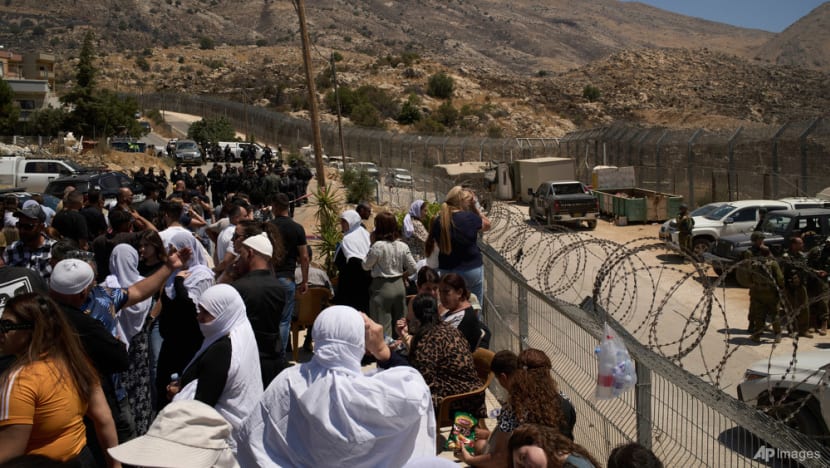
THE BEDOUINS
While predominantly Druze, Sweida is also home to Bedouin tribes who are Sunni Muslim and who have on occasion clashed with the Druze.
In 2000, unrest broke out after a Bedouin killed a Druze man in a land dispute. Assad's forces intervened, shooting Druze protesters. After a 2018 Islamic State group attack on the Druze in Sweida that killed more than 200 people, the Druze accused the Bedouins of helping the militants.
The latest escalation began with a Bedouin tribe in Sweida setting up a checkpoint and attacking and robbing a Druze man, which triggered tit-for-tat attacks and kidnappings, according to the Syrian Observatory for Human Rights, a Britain-based war monitor.
Al-Sharaa's forces then intervened, ostensibly to restore calm, but sided with the Bedouins. Some Druze groups allegedly carried out revenge attacks against Bedouins after a ceasefire was reached.
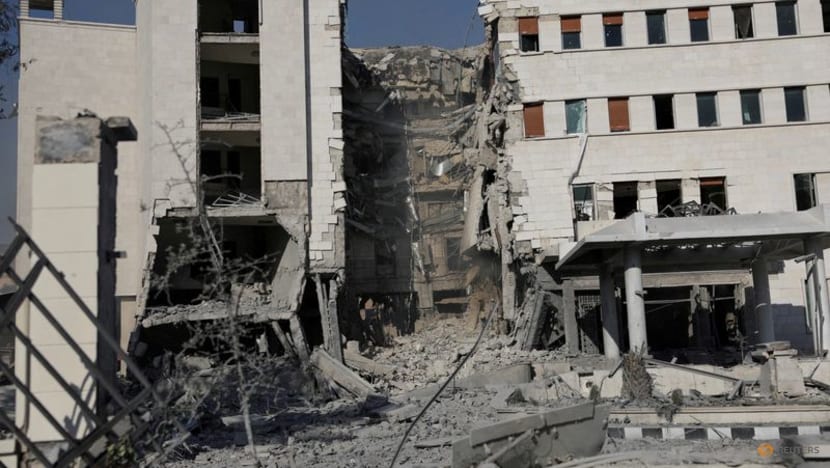
ISRAEL
Israel bombed Syria frequently when Assad was in power, seeking to roll back the influence established by Iran and Iran-backed groups that deployed there to help him fight rebels.
Israel has painted the new Syrian government as a jihadist threat, saying it would not allow it to deploy forces into southern Syria. Israel has said it wants to avoid any hostile build-up at its border, while also vowing to protect the Druze minority.
Sharaa on Thursday said Israel was promoting division among Syrians, accusing it of seeking to "dismantle the unity of our people", saying it had "consistently targeted our stability and created discord among us since the fall of the former regime".
Washington has been pushing for Syria and Israel to move toward normalising relations. Syrian officials have acknowledged holding indirect talks with Israel to defuse tensions.
Amin Saikal, distinguished visiting fellow at the S Rajaratnam School of International Studies, told CNA’s Asia First that Israel’s continuous bombing of Syria would cause “enormous difficulties” for the Syrian government to consolidate power and to unite the country.
“(It) is a Sunni majority Muslim state (but with) a number of minorities that are challenging the central government … and … Druze is one of them,” he added.
He noted that while Sharaa has been trying to reach out to Israel for peaceful co-existence, he does not believe that is sufficient for Netanyahu and extremists in his Cabinet who want to implement "an expanded and more secure Israeli state" in the region.
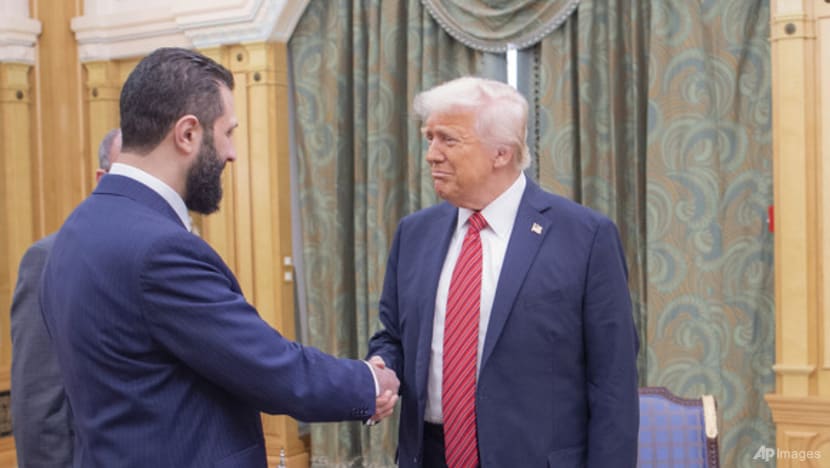
UNITED STATES
In a watershed moment, President Donald Trump met with al-Sharaa during a visit to Saudi Arabia in May, a major boost from Washington as the new Damascus authorities try to consolidate control.
Amid the Sweida violence, the US, which has been pushing to broker ties between Syria and Israel, launched a flurry of diplomacy to push for a ceasefire.
Secretary of State Marco Rubio said the US was "very worried" about the violence, describing it as a "direct threat to efforts to help build a peaceful and stable Syria", and added that Washington was in "repeated and constant talks with the governments of Syria and Israel" to de-escalate.
The US on Thursday said that it did not support Israel's recent strikes.
Rubio said the US had engaged all parties and that steps had been agreed to end a "troubling and horrifying situation".
CHINA
In a Chinese foreign ministry press conference on Thursday, spokesperson Lin Jian said: "Syria’s sovereignty and territorial integrity should be respected.
"In particular, given the continuous ongoing turbulence in the Middle East, there shouldn’t be any action that may lead to escalation."
China was a backer of the Assad government during the civil war.
In January, al-Sharaa met China's ambassador to Damascus - the first public engagement between the two countries since Assad was overthrown.
Earlier this year, Syria's foreign minister said the new government seeks to strengthen relations with China and to build a "long-term strategic partnership".
TÜRKIYE
Türkiye, an ally of both the US and al-Sharaa's government, was also part of the mediation efforts over Sweida.
Ankara wants a strong state in Damascus and is primarily concerned with curtailing the influence of Kurdish groups in Syria along the border with Türkiye - specifically, the Kurdish-led Syrian Democratic Forces, or SDF.
While the Kurdish SDF fighters are allied with the US and were key in defeating the Islamic State militants, Ankara considers them terrorists because of their association with the Kurdistan Workers’ Party, or PKK, which has waged a long-running insurgency in Türkiye.
Saikal noted that Türkiye is a strong supporter of al-Sharaa’s government.
He added that Turkish President Recep Tayyip Erdogan had already "warned Israel against escalating the conflict and requested him to pull out forces from Syria".
THE KURDISH-LED FORCES
The Kurdish-led SDF controls much of northeast Syria and was not part of the Sweida violence. But its fighters have in the past clashed with Turkish-backed groups that are now part of the new Syrian government forces.
In March, the SDF and Damascus signed a landmark deal - backed by Washington - under which the Kurdish-led forces would merge with the new Syrian national army.
The deal also said Syria's border crossings with Iraq and Turkey, as well as airports and oil fields in the northeast that are now under the SDF control, would be turned over to the central government.
But the details of the deal were left vague, and the two sides have been at odds over how to implement it. The Sweida escalation could further sideline those discussions.













